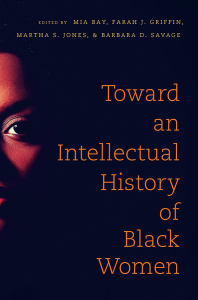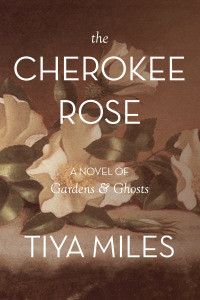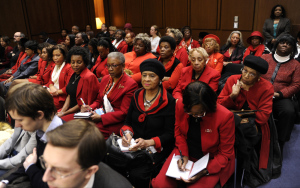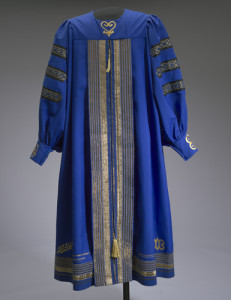 My friend, historian Emily Clark, posted this image of Johnnetta Cole’s Bennett College inauguration robe during her visit to the NMAAHC. I was moved because I was at Bennett College when I saw the post, getting ready to deliver the Founders’ Day address, marking Bennett’s 90th anniversary. I’m a booster for Bennett because my own grandfather, David Jones, was president there for 30 years, and because it is one of only two remaining HBCUs for women.
My friend, historian Emily Clark, posted this image of Johnnetta Cole’s Bennett College inauguration robe during her visit to the NMAAHC. I was moved because I was at Bennett College when I saw the post, getting ready to deliver the Founders’ Day address, marking Bennett’s 90th anniversary. I’m a booster for Bennett because my own grandfather, David Jones, was president there for 30 years, and because it is one of only two remaining HBCUs for women.
When Muster (the blog of the Journal of the Civil War Era) invited me to pen a review of the Museum, I jumped. You can read more about my virtual visit, the history of HBCUs told there, and why you should make the visit to Washington to see for yourself here.



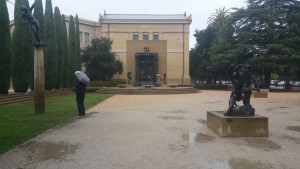 I’m reading L.D. Burnett, from her recent paper at the USIH meeting. I most often encounter her via a quick quip on Facebook or Twitter. So I was all the more moved to find her here, in long form, thinking out loud about the meaning of our life’s work as academics. I am always eager to link arms against cynicism and its related world view. Thanks for L.D. for sharing this:
I’m reading L.D. Burnett, from her recent paper at the USIH meeting. I most often encounter her via a quick quip on Facebook or Twitter. So I was all the more moved to find her here, in long form, thinking out loud about the meaning of our life’s work as academics. I am always eager to link arms against cynicism and its related world view. Thanks for L.D. for sharing this:
